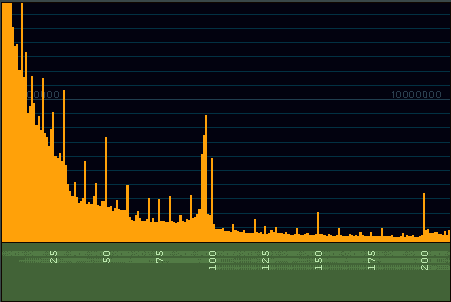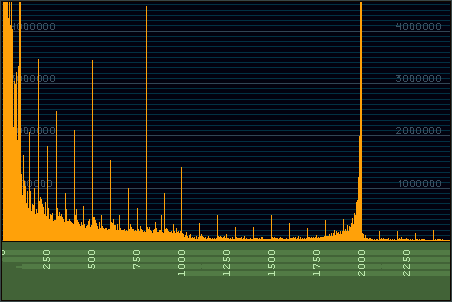I'am learning German (any other language will do).
I choose randomly a countable noun - for example the noun "Hotel".
I write the noun into google together with German numeral for "two" in double quotes: "zwei Hotels" and write down the number of matches (229000).
I repeat the experiment with 3 - "drei Hotels" (14100 matches), 4 (8490), 5 (3670), 6 (3160), 7 (3700) ...
What probability distribution should I expect to obtain?


